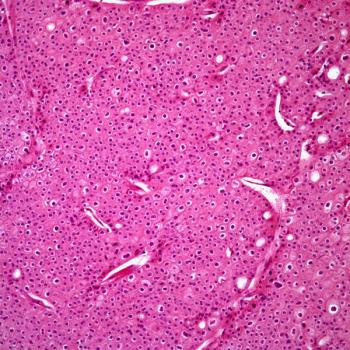
In the phase 3 RENOTORCH trial, frontline toripalimab plus axitinib appears to improve the overall response rate of patients with unresectable or metastatic renal cell carcinoma.

Your AI-Trained Oncology Knowledge Connection!


Nicholas Wrigley formerly wrote for CancerNetwork and was an editor for the journal ONCOLOGY.
He is a writer of fiction; his work has appeared in a local anthology, the Best Short Stories of Philadelphia, and elsewhere. He holds an MFA in Creative Writing from Temple University and spends most of his spare time reading books, writing books, playing video games, or sleeping. He has inexplicably strong opinions on East European history, Star Wars, and pasta. He lives in Greater Philadelphia with his family and, more importantly, their two dogs.

In the phase 3 RENOTORCH trial, frontline toripalimab plus axitinib appears to improve the overall response rate of patients with unresectable or metastatic renal cell carcinoma.
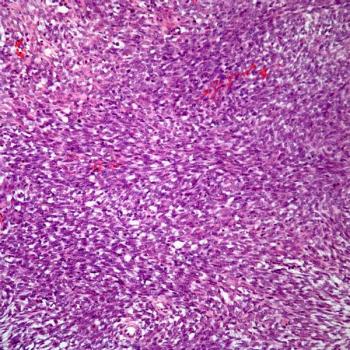
Findings from the phase 3 OUTBACK trial show that following standard cisplatin-based chemotherapy with adjuvant chemotherapy resulted in increased toxicity among patients with cervical cancer.

There is a clear need for further trials and drug development to mitigate poor outcomes in patients with small cell lung cancer, according to an expert from Yale School of Medicine.
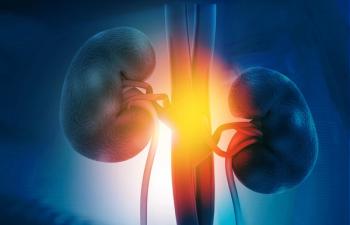
Farshid Sadeghi, MD, elaborates on improvements in minimally invasive surgery technique and the interdisciplinary cooperation that goes into treating kidney cancer.
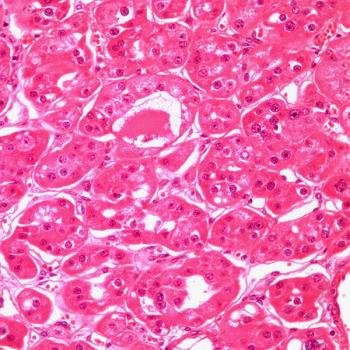
The safety profile seen in the phase 3 CONTACT-03 trial, assessing cabozantinib and atezolizumab in advanced renal cell carcinoma, is consistent with previous findings.

A novel smoking cessation treatment for survivors of cervical cancer or cervical intraepithelial neoplasia appears to improve rates of abstinence in the short-term, but approximately matches the efficacy of standard treatment at 18 months.

According to a retrospective analysis, bendamustine treatment correlates with a higher risk of infection and second malignancy compared with other treatments for indolent B-cell lymphoma.

Adding avelumab to VEGFR inhibitor axitinib may prolong survival and improve outcomes among patients with recurrent/metastatic adenoid cystic carcinoma.

Patritumab deruxtecan continues to yield positive efficacy in 2 early phase trials assessing the agent in patients with metastatic non–small cell lung cancer and breast cancer.

Bria-IMT plus retifanlimab continues to show positive clinical outcomes in a small cohort of patients with advanced, metastatic breast cancer, according to data from a phase 1/2 trial.

Enzalutamide plus leuprolide appears to improve metastases-free survival vs placebo plus leuprolide in patients with non-metastatic hormone-sensitive prostate cancer.

The phase 3 LIMBER-304 trial examining parsaclisib with ruxolitinib vs matched placebo will be discontinued after an interim analysis concluded it would likely miss the primary end point.

New findings from the phase 3 ADAURA trial “provide powerful evidence” of osimertinib’s potential to extend the lives of patients with early-stage, EGFR-mutant non–small cell lung cancer, according to an expert from Yale Cancer Center.

A panel of experts reviews how the recent approval of teclistamab, a bispecific antibody, has changed the treatment landscape for patients with multiple myeloma.
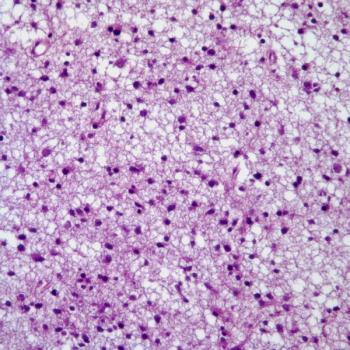
Vorasidenib monotherapy appears to improve clinical outcomes among patients with IDH-mutant low-grade glioma, meeting 2 end points in the phase 3 INDIGO trial.

Anthony D’Amico, MD, PhD, reviewed current practices and unanswered questions surrounding radiotherapy in the realm of prostate cancer.

Matthew Dallos, MD, discusses current challenges in the treatment of castration-resistant prostate cancer and the potential of antibody-drug conjugates in this disease space.

The presence of teratoma in pretreatment non-seminomatous germ-cell tumors correlates with a higher risk of teratomatous elements in residual non- retroperitoneal disease following chemotherapy.

The phase 3 TORCHLIGHT study, examining toripalimab and paclitaxel, has become the first study in China to achieve positive outcomes with immunotherapy for triple-negative breast cancer.

Data from a phase 2 placebo-controlled trial may support darolutamide switch maintenance therapy following at least 1 androgen receptor pathway inhibitor and taxane chemotherapy in patients with metastatic castration-resistant prostate cancer.

Data from a prospective pilot study indicate that circulating tumor DNA may be a valuable prognostic biomarker in early-stage follicular lymphoma.

Investigators report that pembrolizumab plus enzalutamide and androgen deprivation therapy does not significantly improve outcomes in castration-resistant prostate cancer; neither did pembrolizumab/chemotherapy in non–small cell lung cancer.
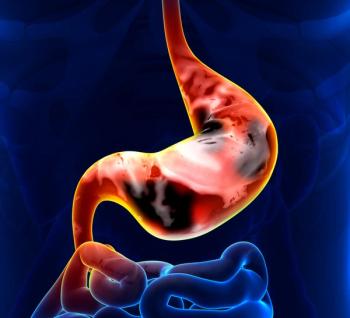
Patients from China with unresectable or metastatic gastric or gastroesophageal junction adenocarcinoma can now be treated with tislelizumab plus chemotherapy following its approval.

A qualitative, interview-based analysis identified 7 distinct roles played by hematologists relating to shared decision making for patients with advanced lymphoma or leukemia.

The FDA states that the refusal to file letter for SGX301 in early-stage cutaneous T-cell lymphoma was because the new drug application was insufficient for permit substantive review.
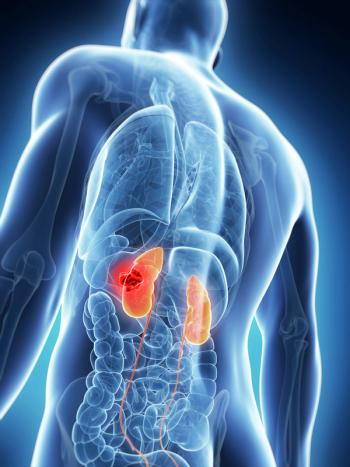
When combined with nivolumab and ipilimumab, cabozantinib appears to improve outcomes over placebo for patients with advanced, intermediate-risk renal cell cancer, and showed some efficacy among the poor-risk population.

Niraparib plus abiraterone and prednisone continue to improve outcomes among patients with metastatic, castration-resistant prostate cancer and HRR gene alterations, according to interim data from the MAGNITUDE study.

Phase 3 KEYNOTE-859 trial data favor pembrolizumab plus chemotherapy over chemotherapy alone in the frontline setting for metastatic or unresectable gastric or gastroesophageal junction cancer.
![“Transfusion independence is the key to my excitement [with] momelotinib as a drug. I will likely use it in most patients in the second-line setting,” says an expert from the University of Texas MD Anderson Cancer Center.](https://cdn.sanity.io/images/0vv8moc6/cancernetwork/6b454d1cce9c39769e8c1acf1f2a6ea96669c1f9-1200x800.jpg?w=350&fit=crop&auto=format)
“Transfusion independence is the key to my excitement [with] momelotinib as a drug. I will likely use it in most patients in the second-line setting,” says an expert from the University of Texas MD Anderson Cancer Center.

An expert from the Georgia Cancer Center underscores the need to proactively address socioeconomic challenges in survivors of hematologic cancer.